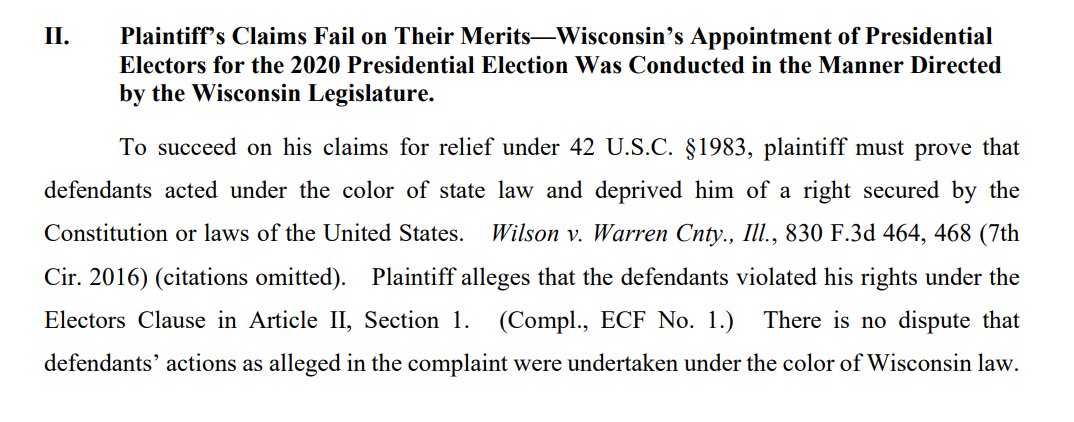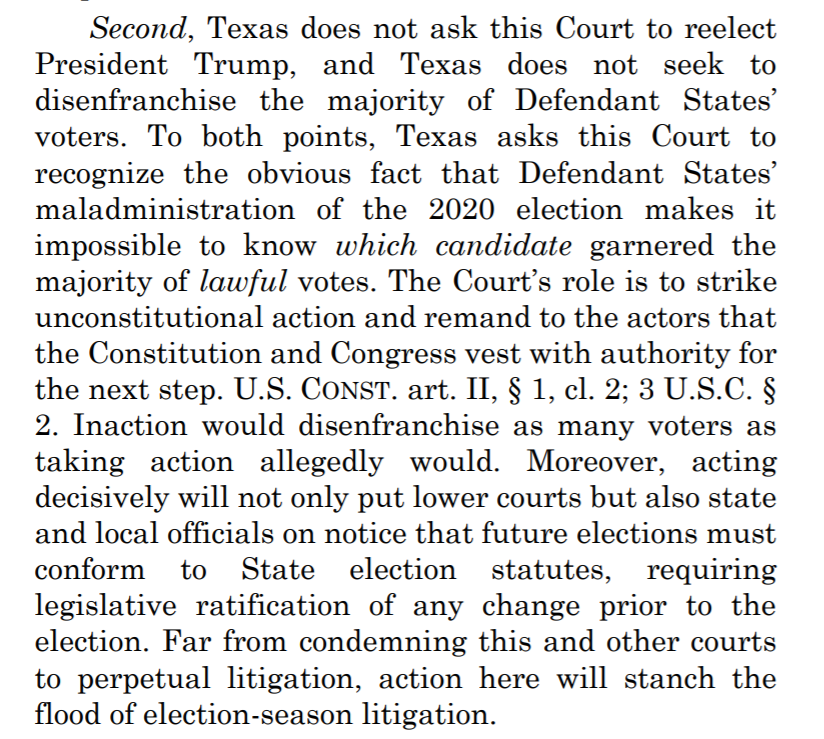
Here's the Supreme Court order rejecting Texas' attempt to throw out the results of the presidential election in four other states. The court declines to hear it; the only dispute is a technical one over the manner by which it is killed.
It's over.
supremecourt.gov/orders/courtor…
It's over.
supremecourt.gov/orders/courtor…

The court's decision - that Texas lacks standing to bring this case - means it could not and did not reach the other issues. But these claims have all been rejected for many, many, many other reasons by other state and federal courts. Many.
Justices Alito and Thomas indicated that the court was (in their very consistent view) required to hear the case but that they too "would not grant other relief" - meaning they too wouldn't sign on to Texas' request for an injunction throwing out the election.
After all that, not one of the three Supreme Court justices nominated by President Trump made even a squeak in public to support this breathtaking attempt to invalidate the election he lost.
Again - this is over.
Again - this is over.
There are a few other cases banging around - Trump has a state-court challenge in Georgia, a federal case in Wisconsin he could well lose today/tomorrow and an appeal tomorrow to the Wisconsin Supreme Court where a majority has already questioned its power to overturn elections.
.@reuters: The U.S. Supreme Court on Friday brought an abrupt end to a long-shot lawsuit filed by Texas and backed by President Trump seeking to throw out voting results in four states, dealing him a crushing setback in his quest to undo his election loss
reuters.com/article/us-usa…
reuters.com/article/us-usa…
Trump and his allies have lost dozens of cases trying to overturn the result of the election he lost. In state courts, federal courts, in front of Trump appointees, in the Supreme Court. That kind of record should send a very clear signal about the merit of these claims.
One quibble: We don't actually know for sure the court was unanimous on Texas' suit. It looks that way. There were no dissents, and two of the most conservative justices expressly said they'd deny relief. But the order doesn't technically say what the final vote was.
• • •
Missing some Tweet in this thread? You can try to
force a refresh














